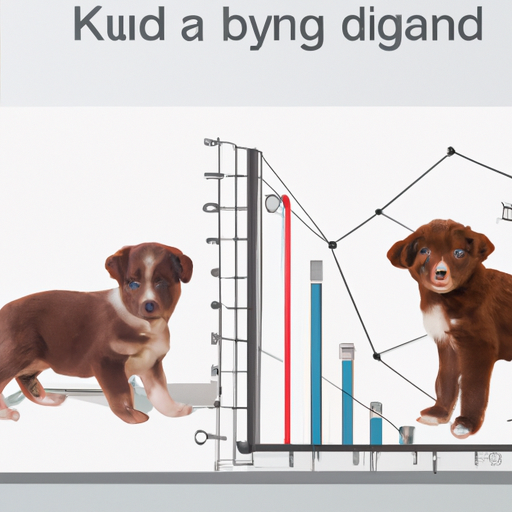Understanding Your Dog’s Growth
You’re likely watching your furry friend grow and wondering when they’ll reach their full size. Just as with humans, the growth rates and periods for dogs can vary significantly. It often depends on their breed, diet, and overall health.
For smaller breeds, they typically stop growing between 6 to 8 months. However, for larger breeds, they may continue to grow up until 18 months. In some cases, giant breeds like the Great Dane or the Mastiff may continue to grow up until 24 months.
Factors That Influence Your Dog’s Growth
There are several factors that can influence your dog’s growth:
- Breed: This is the most significant factor. Smaller breeds tend to mature faster than larger ones.
- Nutrition: A balanced diet is crucial for your dog’s growth. A poor diet can result in stunted growth.
- Health: Certain health issues can affect your dog’s growth, like parasites or genetic disorders.
Tracking Your Dog’s Growth
Here’s a handy table that gives you a ballpark of when dogs of different sizes stop growing:
| Dog Size | Age When Growth Stops |
|---|---|
| Small | 6-8 months |
| Medium | 12-15 months |
| Large | 18-24 months |
Remember, these are just approximations. Your dog might grow faster or slower.
How to Support Your Dog’s Growth
There are several ways you can support your dog’s growth:
- Feed them high-quality dog food that’s appropriate for their age, size, and breed.
- Regular exercise is crucial for their physical development.
- Regular vet check-ups can help catch any potential issues early.
When to Be Concerned About Your Dog’s Growth
While it’s normal for dogs to grow at different rates, there are signs you should watch out for:
- If your dog is underweight or overweight for their age and breed.
- If they’re not reaching developmental milestones.
- If they’re showing signs of discomfort, like limping or difficulty moving.
If you notice any of these signs, it’s best to consult your vet.
FAQs
Q: My dog is 10 months old and hasn’t grown in the last 2 months. Should I be worried?
A: Not necessarily. Some dogs finish their growth earlier than others. However, if you’re concerned, it’s always a good idea to consult your vet.
Q: Can I speed up my dog’s growth?
A: It’s best not to. Dogs grow at their own pace, and trying to speed up the process could harm their development.
Q: Is it normal for my dog to be smaller than others of its breed?
A: Yes, just like people, dogs of the same breed can vary in size. As long as your dog is healthy, there’s no need to worry.
Remember, when it comes to your dog’s growth, patience is key. They’ll reach their full size in their own time, and all you need to do is provide them with love, care, and a healthy lifestyle.



